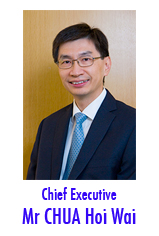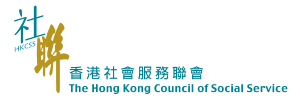 Chua Hoi-wai says the suggestion that NGOs that also receive private funding may be wasting government subsidies is inaccurate, as all their services are aimed at meeting community needs
Chua Hoi-wai says the suggestion that NGOs that also receive private funding may be wasting government subsidies is inaccurate, as all their services are aimed at meeting community needs
In recent years, government subsidised welfare agencies in Hong Kong have gone the extra mile to rally community resources to meet our rapidly multiplying social needs. But as agencies garner more private donations, should the government reduce its support, lest it be seen as “subsidising” private funders?
This question points to the daunting prospect of reduced government funding, should one recommendation of the latest Audit Commission report be enacted.
The lump-sum grant system, the government funding model for non-governmental organisations since 2000, is designed to encourage agencies to build community partnerships to address social problems effectively. NGOs have successfully mobilized resources, as evident in the increase in funding from HK$600 million to HK$3 billion, from corporations and individuals between 2002 and 2016. In addition to increasing support from traditional funders like the Hong Kong Jockey Club and the Community Chest, welfare agencies have forged partnerships with business corporations and charitable foundations.
With these extra resources from the community, NGOs have quickly and innovatively met social needs. They hire more social workers to provide better care for seniors with dementia in government-funded homes. By improving community centres’ manpower ratios, agencies can serve more children with special needs. NGOs can also extend services to support carers or family members not considered direct beneficiaries of governmentfunded programmes. The community spirit is palpable as private funders work with the government and NGOs to make society more caring and inclusive.
The Audit Commission report criticised NGOs for spending grant money on non-governmentfunded services. Though office overheads, such as the salary of agency heads and office rental, are typically covered by the lump-sum grant, the commission said NGOs should attribute some of these overheads costs to the “selffinancing activities”.
This seems a logical request, but is based on the misperception that NGOs waste taxpayer money on activities unrelated to their mandate.
The “self-financing activities” the report refers to are an extension of the government-approved core services of the NGOs. These activities are “self-financing” because they are supported by private funders who want to help the government and NGOs do better. The government has clearly not suffered at all, nor has any public money been misused, when private funders chip in.
In the first place, NGOs must raise funds for extra services because the government isn’t providing sufficient funding to address needs.
We know the government alone cannot shoulder all social welfare expenses. Therefore, it is of paramount importance that we clear up any misunderstanding over the proper use of government funds, which will then allow us to mobilise community resources for the public good.
We look forward to working with the government task force responsible for reviewing the lump-sum grant system, in settling on a mutually agreeable definition of subsidised service goals. We hope the task force will keep in mind the holistic nature of NGO work while setting the parameters.
Meanwhile, we call for more NGO participation in the Audit Commission’s future reporting, so that a dialogue can happen for us to explain our perspective, allay concerns and clarify misunderstandings.
Chua Hoi-Wai is chief executive of the Hong Kong Council of Social Service
(South China Morning Post, 15 December 2017)
